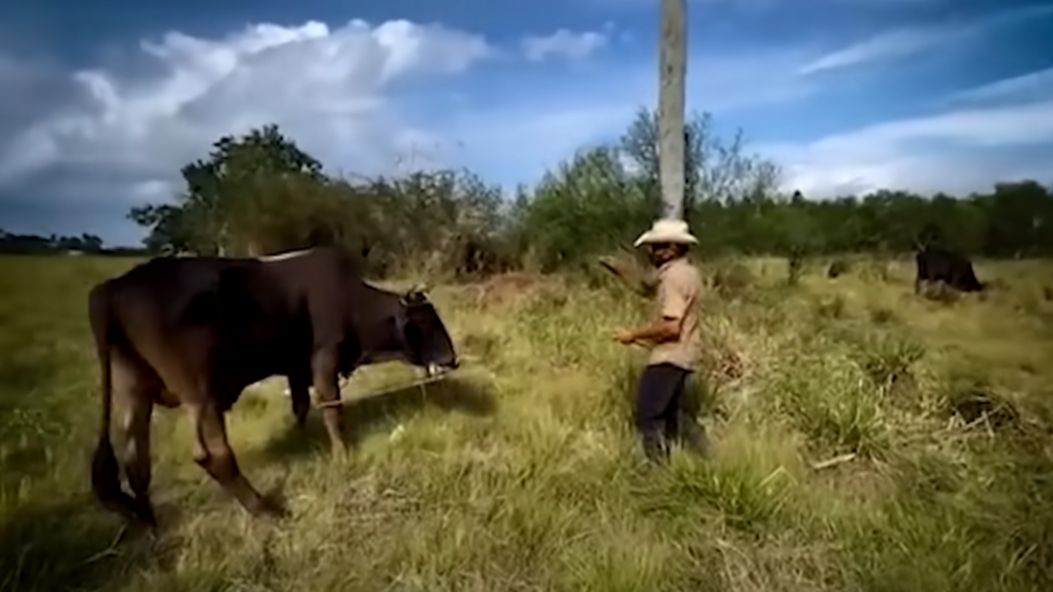MIAMI, United States.- Just a few days ago, Televisión Azteca presented the documentary Cuba: Neither Homeland nor Life, by the Mexican journalist and presenter Carolina Rocha, which shows images of the Cuba that tourists do not see, a lacerated island for 63 years of communism.
In a television interviewin which he promoted the material, Rocha spoke of the precariousness of Cubans, who do not have access to basic products such as cleaning, food and medicines, even with money in hand those who receive remittances.
The audiovisual, recorded with a cell phone in hand, captured the serious consequences that Fidel Castro’s so-called “revolution” brought to Cubans and the country, which “implemented communism as an economic model, and with which it destroyed everything in its path.” .
“Neither Patria Ni Viva shows the hopelessness and poverty, so daily and so unknown in Cuba,” said Rocha, who said she was surprised by a reality that has been repeated for decades. “We all know that in Cuba people go hungry, that there is a famine. It’s something you always hear but hadn’t been able to see,” she said.
how it was recorded
The presenter, who came to the island as a tourist, explained that since her arrival at the airport she knew that something was not right. “The first day I went for a run and I saw lines and lines of people. It was there that I started recording.
Carolina Rocha was not left alone with the images she obtained in Havana, the Mexican journalist went to the Cuban countryside and interviewed the peasants, those who almost never appear on tourist postcards.
“We try to portray the Cuban reality that the tourist never knows. The tourist goes and if he stays in the hotel and visits the planned places,” he explained, adding that if he had done what foreign visitors do on a regular basis, “I would never have realized that there is hunger, that there are no products, that there is no toothpaste, for example”.
Rocha also demanded that the Cuban government blame the embargo for everything that happens in the country, because “not trading with the United States does not lead you to internal policies as a State” when it comes to paying peasants, prohibiting freedom of expression, of not allowing private enterprise. “Right now there is a humanitarian crisis on the island,” he said.
It is appreciated
The Cuban writer Zoe Valdes celebrated Carolina Rocha’s documentary and described it as “excellent”, since “it shows the current reality of Cuba, and the shortcomings that have worsened over time, but that have existed since the mid-1960s.”
Valdés thanked the director for “the good sense” of not staying in “Havana and going to the countryside, where the real “artists” are the peasants”, who “with a superhuman effort, work from sunrise to sunset to feed to the people, and they don’t mince words when it comes to speaking”.
Likewise, he added that “it is very illustrative that the peasants are the ones who best express themselves in the documentary compared to the only two intellectuals who demonstrate: the socialist Rafael Rojas, who voted in Mexico for AMLO, that is, for destroying Mexico, and who also has a house in Miami; and the other socialist, Leonardo Padura, who speaks very cynically about the young people who have to leave, when he only returns to the island, authorized, of course, by the regime, to mark the card so as not to lose his house in Mantilla and To film this type of documentaries, the rest of the year is spent traveling; this is the little friend of the former guerrilla Dilma Rousseff, who held the presidency of Brazil, and of the corrupt Lula da Silva, whom he went to visit in prison by express order of Raúl Castro”.
Receive information from CubaNet on your cell phone through WhatsApp. Send us a message with the word “CUBA” on the phone +1 (786) 316-2072, You can also subscribe to our electronic newsletter by giving click here.






